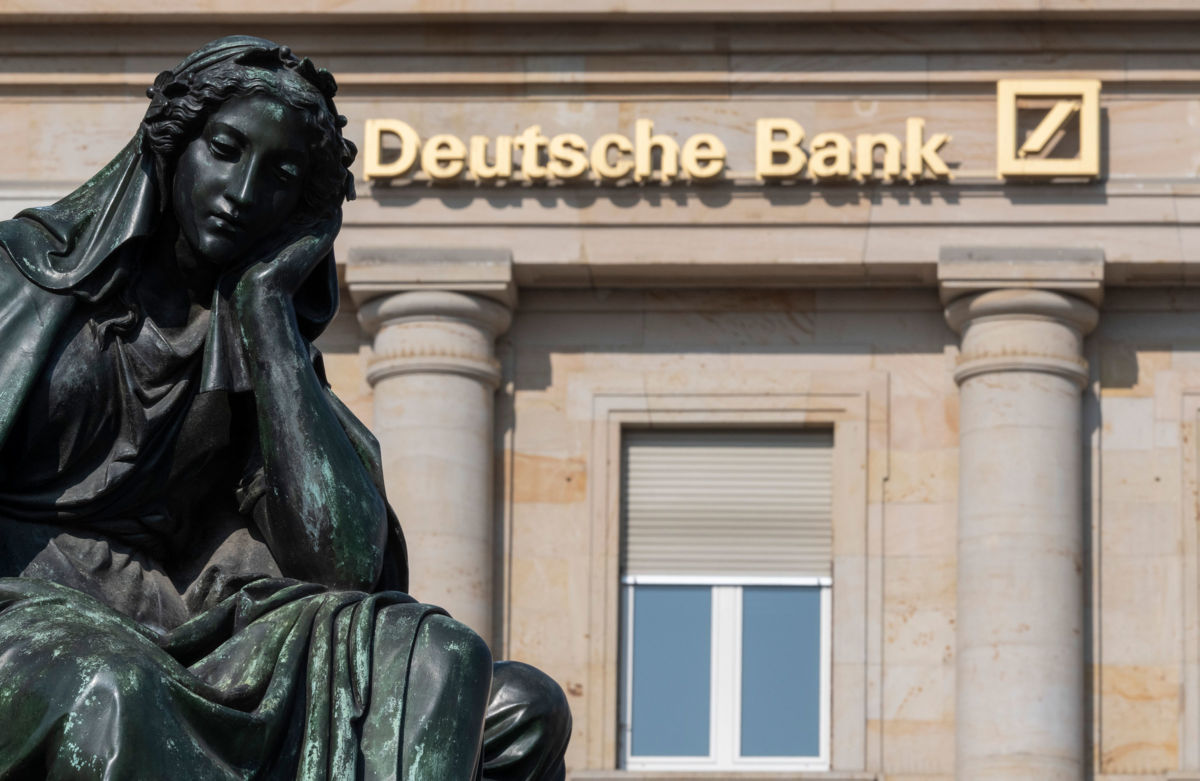The House Financial Services and Intelligence Committees have subpoenaed Deutsche Bank, which has long provided loans to President Donald Trump despite “a long history of defaults and bankruptcies,” according to The New York Times.
During the course of his business career, Trump has reportedly received more than $2 billion in loans from Deutsche Bank. As the president took office, he had more than $300 million in outstanding loans from the financial institution, which was his largest creditor.
Recent congressional testimony by Michael Cohen, in which the president’s former personal attorney and “fixer” raised allegations of possible financial crimes committed by Trump, has brought the president’s finances under renewed scrutiny. Experts have placed particular focus on Cohen’s statements about how the president allegedly exaggerates the extent of his wealth.
“The two committees that issued the subpoena . . . also demanded documents from numerous other financial institutions, including JPMorgan Chase, Bank of America and Citigroup, related to possible money-laundering by people in Russia and Eastern Europe,” the Times reported.
“The potential use of the U.S. financial system for illicit purposes is a very serious concern,” House Financial Services Chairwoman Maxine Waters, D-Calif., said in a statement. She explained that her committee was “exploring these matters, including as they may involve the president and his associates, as thoroughly as possible pursuant to its oversight authority, and will follow the facts wherever they may lead us.”
Waters was even more scathing at a public hearing last week when speaking to the chief executives of several big banks about their business dealings with Russia.
“Much has been reported about how Deutsche Bank has been a pathway for criminals, kleptocrats and allies of Mr. Putin to move illicit funds out of Russia. But recent information shows that some of your institutions have also been providing services for Russian individuals or entities that may be engaging in questionable transactions,” Waters told the banking executives at the hearing.
Kerrie McHugh, a spokesperson for Deutsche Bank, responded to media reports about the subpoenas by saying that the company was “engaged in a productive dialogue,” and it would “remain committed to providing appropriate information to all authorized investigations in a manner consistent with our legal obligations.”
By contrast, the Trump Organization’s lawyer Alan Garten told reporters that the company was mulling how the company could possibly stop Deutsche Bank from observing the House Democrats’ subpoena.
“This subpoena is an unprecedented abuse of power and simply the latest attempt by House Democrats to attack the president and our family for political gain,” Eric Trump explained in a statement. The president’s youngest son, who partially runs his business empire, also argued that the subpoenas “set a horrible precedent for all taxpayers.”
Deutsche Bank has been responsible for a number of Trump’s most high-profile loans, including renovations of his Art Deco tower at 40 Wall Street, an East Side skyscraper, a skyscraper in Chicago, a Trump Marina casino in Atlantic City and an effort to buy the General Motors building in Manhattan. As The New York Times reported last month:
Deutsche Bank officials have quietly argued to regulators, lawmakers and journalists that Mr. Trump was not a priority for the bank or its senior leaders and that the lending was the work of a single, obscure division. But interviews with more than 20 current and former Deutsche Bank executives and board members, most of them with direct knowledge of the Trump relationship, contradict the bank’s narrative.
Join us in defending the truth before it’s too late
The future of independent journalism is uncertain, and the consequences of losing it are too grave to ignore. To ensure Truthout remains safe, strong, and free, we need to raise $31,000 in the next 48 hours. Every dollar raised goes directly toward the costs of producing news you can trust.
Please give what you can — because by supporting us with a tax-deductible donation, you’re not just preserving a source of news, you’re helping to safeguard what’s left of our democracy.
